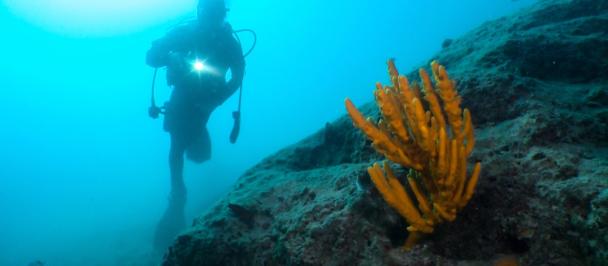As prepared for delivery
Opening address by UNDP Deputy Resident Representative a.i. Valeria Ieseanu
Jafarkhan, Saatli
Water has transformative effect on lives of people and is one of the most essential basic human needs. Availability and sustainability of water systems are important for accelerating the achievement of climate change related goals.
Water is complex because it is linked to almost everything in the world. But complexity should not hinder understanding: Water is a precondition for human existence and for the sustainability of the planet, for the wellbeing of people, food security and poverty eradication.
This new pilot project we have started in this beautiful village of Jafarkhan in Saatli is now home to our new Water Saving Technologies Training Center that we are opening today. This project is by all means the symbol of partnerships and engages very closely with end-user farmers as direct beneficiaries of this project as well as a broader range of stakeholders, including municipalities, Azerbaijan’s Ministry of Ecology, Water Users’ Association and Georgia’s Amelioration Company. The project has introduced the new irrigation technology aiming to raise local farmers’ capacity building as to how to use water sustainably. The drip irrigation system installed in individual households, will be monitored for 5. Analyses will be drawn as to how farmers could use water resources responsibly and also be able to save money if sustainable methods of agriculture and irrigation are used. In the past, water waste was significant as sustainable irrigation technologies were largely unavailable to local farmers hence drip irrigation methods were not typically applied.
The project in Saatly has started as a pilot in the Jafarkhan village, which we hope to be able to scale up to maximise its impact on people and the planet. What we want to achieve is the new generation of environmentally conscious farmers in Azerbaijan who know how to yield more crops with less water – that’s why we’re training Azerbaijani farmers how to grow greener. Cotton fields that need irrigation. Fruit and cotton -two main areas of project focus.
Thanks to Azerbaijan Amelioration and Water Management JSC we now have 3.5 hectare of agricultural land plot for this demonstration project at the Mugan Amelioration and Practice Station in Jafarkhan.
Part of this land is being tested for growing of a cotton variety Adana with the drip irrigation technology. Another part is used for growing of fruit trees (apples, pears, pomegranate apples). Here, we implement comparative analyses dividing each land plot in 2 halves. One half is for drip irrigation and the other half uses classical irrigation for comparison. The project will provide comparison between the water consumption per one hectare of land using the modern drip irrigation method and the traditional irrigation method and draw long term solutions on water management and sustainable farming.
UNDP CO in Azerbaijan takes a strong stand to fight environmental threats and is hence implementing a number of projects across various regions of Azerbaijan –which we take pride to highlight once more this week as the UN Climate Summit convened in New York as of yesterday. Here are just a few examples of our work around climate action:
Women empowerment is the world’s best bet to fight climate change. In Azerbaijan, the risk of climate change is particularly severe for the agricultural sector because the majority of rural population in the country depend on agriculture for their livelihoods. That’s why our flagship Women Resource Centres help women in rural areas build small businesses that safeguard the environment and sustainable agriculture. Our women farmers in the south of Azerbaijan grow organic greenhouse plants and foods to protect the soil from nutrient and water losses making it more resilient to floods, droughts, and land degradation. While many people choose organic food for its health benefits, few people actually know that organic agriculture can significantly reduce emissions, beat global warming and minimise energy consumption while also helping farmers adapt to climate change.
As the largest enclosed inland body of water on the Earth, the Caspian Sea is a precious, but fragile place for approximately 400 endemic species. The biodiversity of the Caspian Sea and the coastal areas has come face-to-face with the danger of depletion in recent years, in large part due to climate change, pollution and land degradation caused by overfishing and unsustainable farming, which all had a negative impact on the overall balance of the ecosystem. To address these threats, Azerbaijan has created the network of special protected areas, the Gizilagaj National Park which received UNDP support among them. Azerbaijan’s landmark wetland, Gizilagaj is the first marine national park in the entire Caspian Sea region. Today, Gizilagaj is home to the mixed breeding population of 92,000 pelicans and other birds, while also offering critical nesting habitat to nearly 600,000 migratory birds as they head down south to find home in Gizilagaj for the winter.
Extreme weather events are not unknown in the mountainous Greater Caucasus Region, but their frequency has increased due to climate change. It is estimated that average annual flood damage in the region amounts to US$18 to $25 million for infrastructure alone. These floods are interspersed with lingering droughts -the extremes in climate have begun to impinge on agriculture. In Azerbaijan, flood disasters have degraded much of the country’s fertile land, and removed vegetation in and around rivers which increased the erosion. With GEF-funding and UNDP support, vulnerable communities in the Kura River Basin in Azerbaijan are benefitting from flood forecasts and community-based early warning systems.
Most smallholding farmers in rural Azerbaijan used to practice traditional farming methods, basing their planting and harvesting decisions on previous experience and guesswork and using surface irrigation. These traditional farming methods produce lower crop yields, degrade the soil, reduce biodiversity, and make farmers in remote villages of Azerbaijan especially vulnerable to the effects of climate change. A new agrobiodiversity programme funded by the Global Environment Facility addresses these vulnerabilities for farmers helping them utilise more sustainable irrigation and cropping techniques and with that preserve the environment.
To decrease local communities’ overt reliance on land, UNDP help small-scale family businesses receive access to alternative sources of income, such as beekeeping and carpet-weaving. Today, their businesses are thriving and the pressure on pasturelands have been significantly reduced.
At UNDP, our current work around the GEF-funded Kura II Project is of great value to all of us also for another reason. It has brought together an impressive array of various stakeholders who UNDP sees as trusted partners and a huge promise for the success of this impactful project. In this regard, I want to specifically acknowledge important collaboration between UNDP and Georgia’s Amelioration joint stock company, the Ministry of Ecology of the Republic of Azerbaijan and all of our local partners. We are happy and honoured to cooperate with both the national and local government and regional municipality to increase farmers’ awareness raising on sustainable irrigation methods and eco-friendly farming practices while also supporting the restoration of river systems in Azerbaijan.

 Locations
Locations
